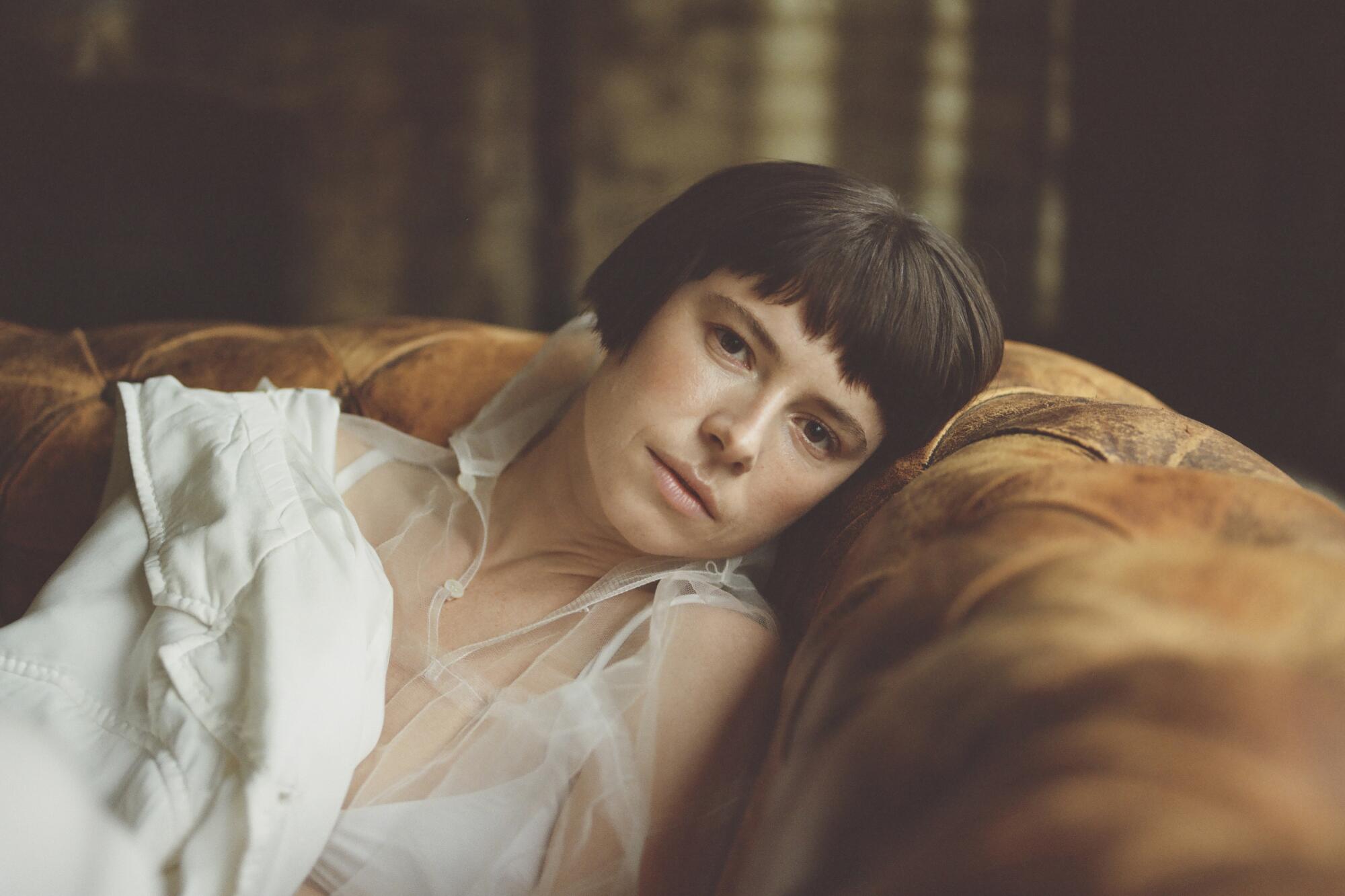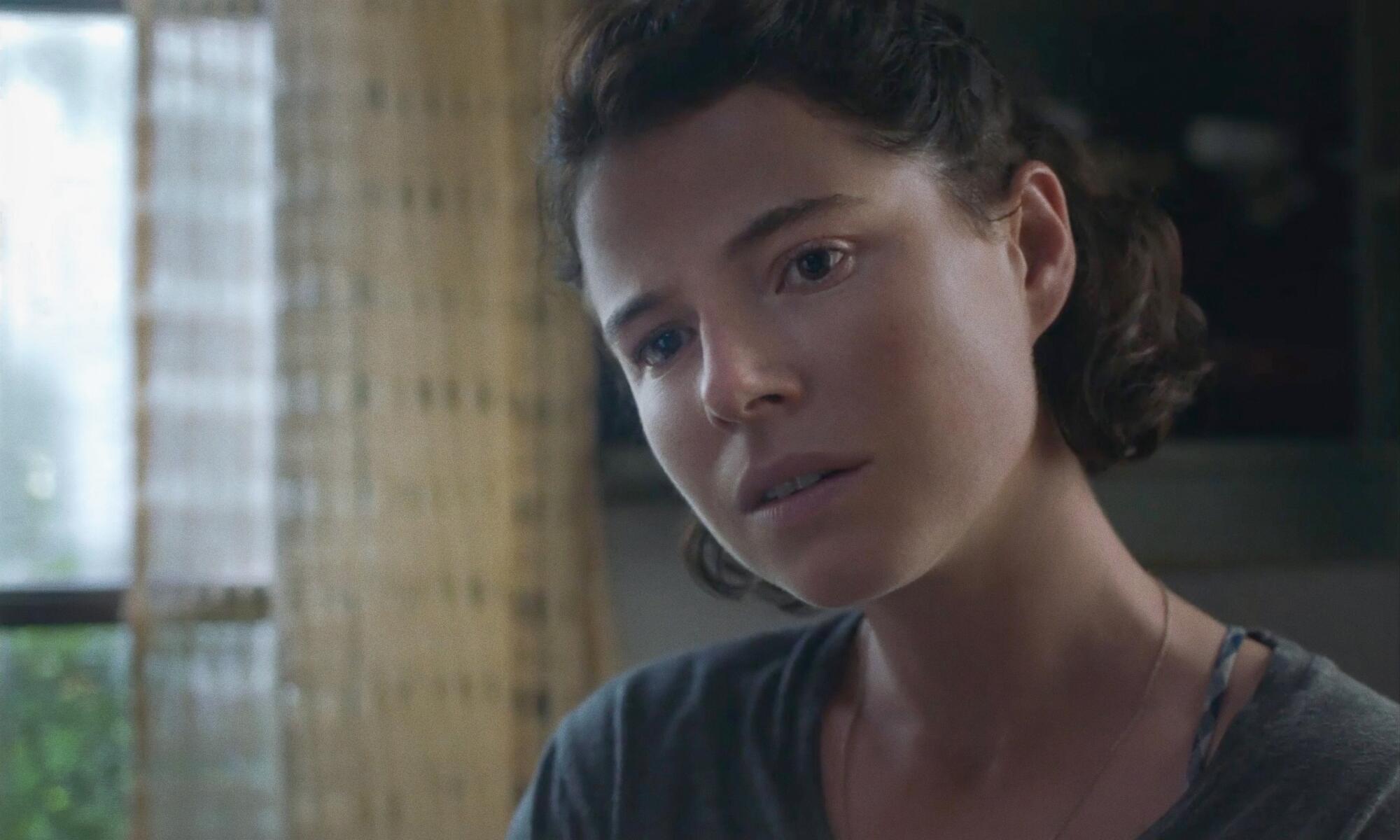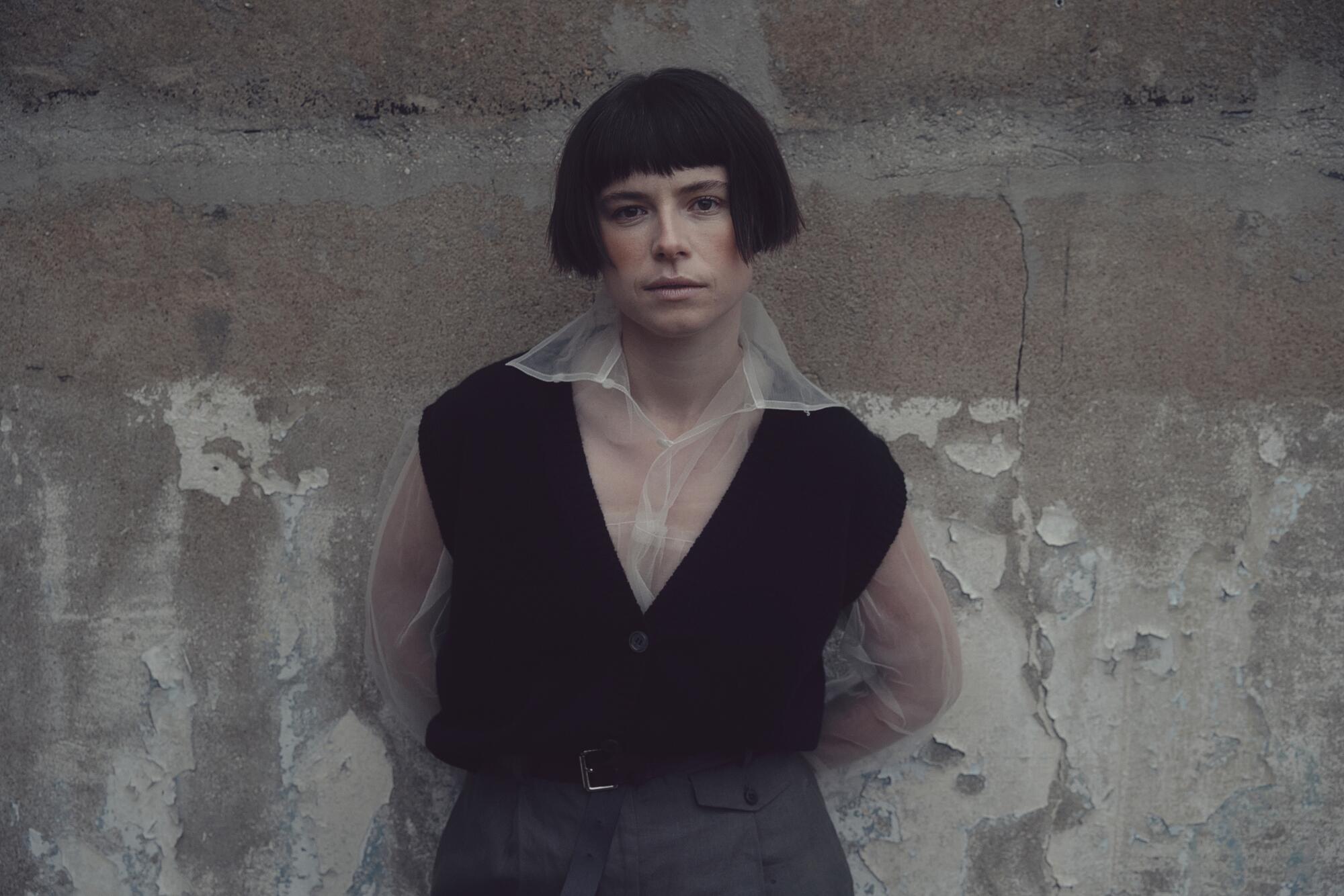
- Share via
Irish actress Jessie Buckley stars in Maggie Gyllenhaal’s “The Lost Daughter,” an adaptation of the Elena Ferrante novel of the same name and a potent psychological drama. Buckley co-stars as Leda, a frustrated, overwrought young mother of two little girls who yearns for an unfettered life in her job as an academic. (Olivia Colman plays the older Leda on holiday in Greece). Buckley is the kind of actress who consistently leavens a role with dopamine-like hits of originality, and her portrayal here is no different.
“Maggie is after the truth and never asked me to be smaller or objectified me in any way,” Buckley says of the first-time director. “Some of the stuff Leda was looking for and hungry for, a lesser director would have told you to do it a certain way. Maggie never did that; she encouraged you all the time.”
The actress is on a walk in London when The Envelope catches up with her, Irish conviviality in hand.
This is Maggie Gyllenhaal’s directorial debut. Had you met her before?
I was in New York with some girlfriends one summer and we spotted Maggie, and my girlfriends were, “Maggie Gyllenhaal!” A huge woman crush, as she’s such a kick-ass woman and brilliant in every way. After I read the script, we had a lovely chat. I was literally going to text Maggie [afterward], “Look, I really want to do this,” and on that same night, she texted me: “How would you like to be my young Leda?”

You shared the character with Olivia Colman, you as young Leda and she the older. How did you handle that kind of split?
Maggie was very clear she didn’t want us to communicate; it could have been oppressive for the character. Also, I don’t think it was important. It was the same woman at different chapters of her life and was something to use versus pulling inward.
So you didn’t know what Olivia was doing, and she didn’t know what you were doing?
The only conversation we had about what we should do together was the accent, really. I shot first; I was kind of in my own small little independent movie in my own world and then she arrived after. I’d known Olivia a bit as a friend before, but I think it’s a testament to the script: The character is so rich, it transverses people and transient time. And Maggie said, “I’m not going to ask the audience to believe these two actresses are the same person. Lead with your imagination and see what you find from yourself emotionally,” which is what we did.
Whenever I see you with the other women in the film doing publicity — Maggie, Olivia, Dakota Johnson — it seems like you all get on like a ball of fire.
The best time. It really was like a sisterhood, and Maggie set the tone. She knows what it’s like to be in a film that’s not fun to make, and she knows what it’s like to be in a really great one. I mean, we had so much fun making this film. Every evening after we finished, we’d jump in the sea and then have a glass of champagne, and then we’d sit and have a sing-song, and then you realize, “Oh, my God, it’s late; I’ve got to go to bed.”
I grew up a lot on the set because of the women on it. There was a kind of an emboldening feeling between us: Let’s not apologize for all of us, the chaos, the beauty, the sexuality, the emptiness, the yearning and the light of us all. It was simply: Let’s go for it. It was the story we were in but also because Maggie held that space and really dared us to jump across the cliff.

I’m sure many people judge the young Leda as a bad or selfish mother.
That’s not what I felt about her. If anything, it opened a question to me, as a woman, about what things we impose on mothers to be the “good mother.” What does a “good mother” actually mean? Does being a good mother genuinely mean you cut your own life off? Or does a good mother go, “I really need a life. I can’t show my daughters as a woman that you have to switch yourself off when you become a mother or wife.” It’s not just men who do that [to women], women do it, too. We do it to ourselves. I guess it’s changing the frame.
Also, everybody has their own right to their judgment of this story. I wouldn’t ask anyone to think about it any other way than how they feel about it. That’s the gift of a story: It can mean a million things to a million different people.
We rely on you in a way to raise those issues, to show us ourselves — it is part of the artist’s role, shining a light and explaining humanity back to itself.
Yes. We all are fallible, we all are chaotic. If we weren’t, it’d be pretty boring. I don’t think we’d really be living. We all have the capability of doing really beautiful things and really horrible things. That’s the dance you get to play, the struggle and the pain. It’s inevitable for everyone. And the joy of what I do.
More to Read
Sign up for The Envelope
Get exclusive awards season news, in-depth interviews and columnist Glenn Whipp’s must-read analysis straight to your inbox.
You may occasionally receive promotional content from the Los Angeles Times.










